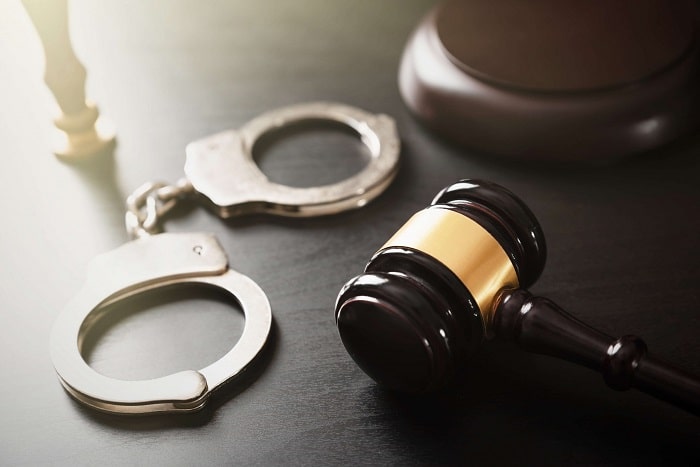In this guide, we’re looking at the difference between crime control and due process, two different models of criminal justice. There are always crime control model pros and cons, whichever system is implemented, and a lot of arguments about which of the two main methods should be put in place.
Both of these crime control model examples generally “agree”. They both dictate that the defense counsel should be an advocate for them in the justice system. Both also believe that if someone breaks the law then they should be adequately punished.

What is the Crime Control Model of Criminal Justice?
The crime control model of criminal justice is a conservative system that assumes that the suspicions of the police when arresting someone are probably correct. This allows the police to hold that person and doesn’t afford them as many protections.
Crime control model examples show people getting arrested and charged without being released back to their own homes or to continue with their lives before a court case. The crime control model of justice sees a lot of the extra steps of investigating the crime as over the top. If the crime is deemed to be almost undeniable, and police find evidence at the scene, it is unlikely to cause any contention.
Crime control is seen as harsher and comes down hard on criminals. However, some non-criminals could potentially get caught up.
What is the Due Process Model of Criminal Justice?
Due process protects peoples’ safety and liberty when they are arrested or charged. Until they have been proven guilty, they are allowed to go about their lives in a relatively normal way, especially if the crime in question does not mean they are deemed to be a danger to society.
Due process is all about preserving people’s rights. If someone is arrested and it is assumed that they are guilty, it is not necessarily fair for them to be treated in this way.
Due process model examples would inevitably see some criminals allowed to continue with their lives for a while, or treated as free citizens, at least until they are proven guilty. However, it prevents the chance of someone innocent being locked up for something they did not do.
Which Model is More Beneficial Crime Control Model vs. Due Process Model?
There is a lot of debate on this subject. The crime control model vs due process model is bound to rumble on for many years. If you look at it through the eyes of financial savings then the crime control model may be more beneficial. Some would argue that it also acts as even more of a deterrent.
However, when you look at the crime control model’s pros and cons, you will see that it can lead to innocent people losing their quality of life. This isn’t always the case, but some people argue that liberty is worth protecting to the extent where the due process pros and cons are more favorable when compared to crime control.
What Type of Legislation is Intended to Both Prevent and Control Crime?
The due process model of criminal justice is certainly not designed to keep crime levels high, but it may not be as much of a control method. The crime control model may do an effective job of preventing some reoffending and means that guilty people are taken off the streets quicker. The problem is that there is a risk to those who have not committed any crime at all.
While the crime control method comes down much harder on people, it does not protect peoples’ rights. In the USA, even a defendant has rights that need to be protected. On top of that, some argue that crime control gives a lot of power to police, and in some high-profile cases, police officers have abused their power historically. Contact our highly experienced criminal defense attorneys to analyze your case.
Due process vs. crime control will always have arguments on both sides. The different criminal systems prioritize different aspects of safety and peoples’ rights. The due process system is a lot more liberal, but this can bring with it dangers, as criminals could commit more crimes before they are found fully guilty.

